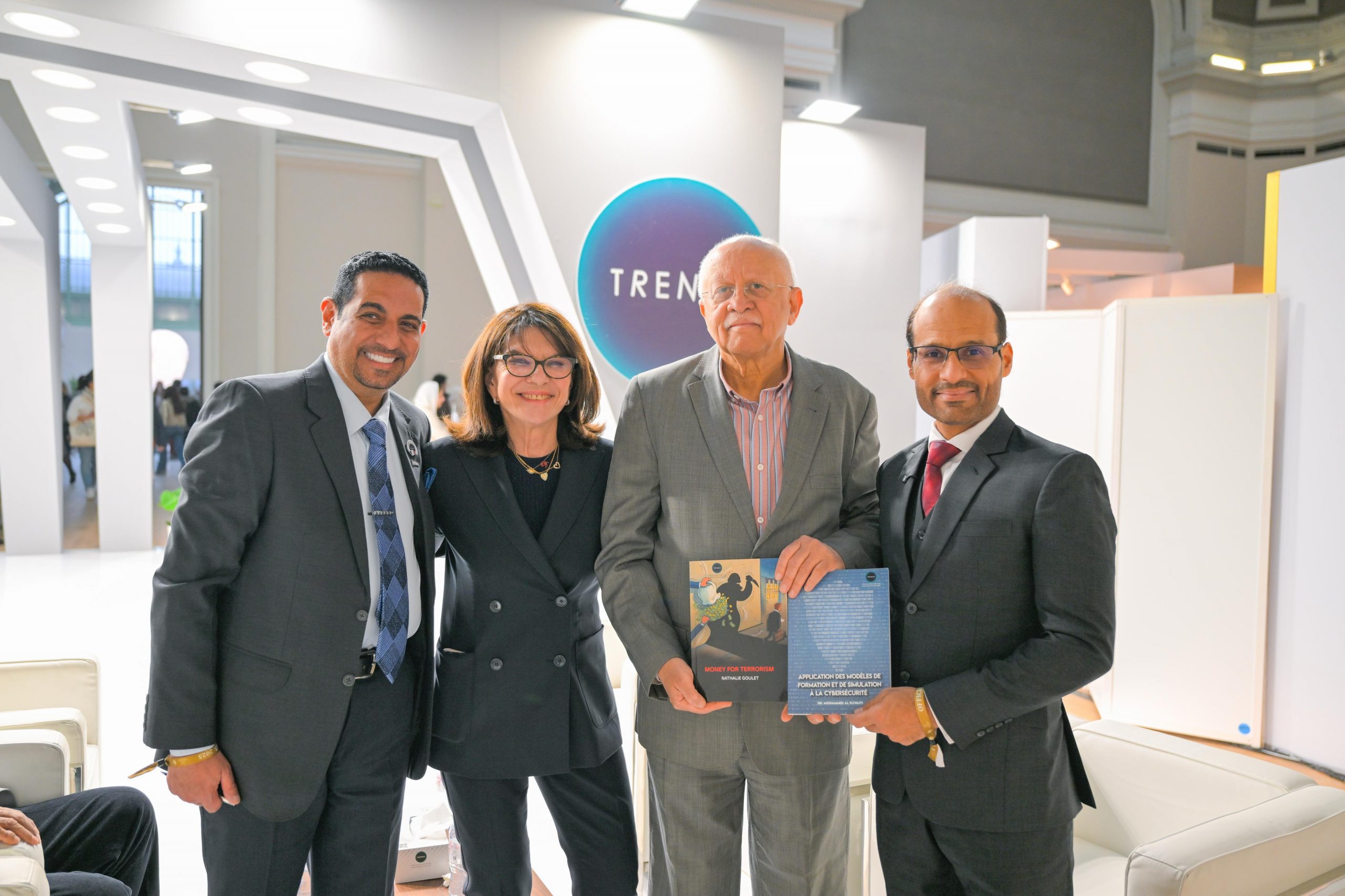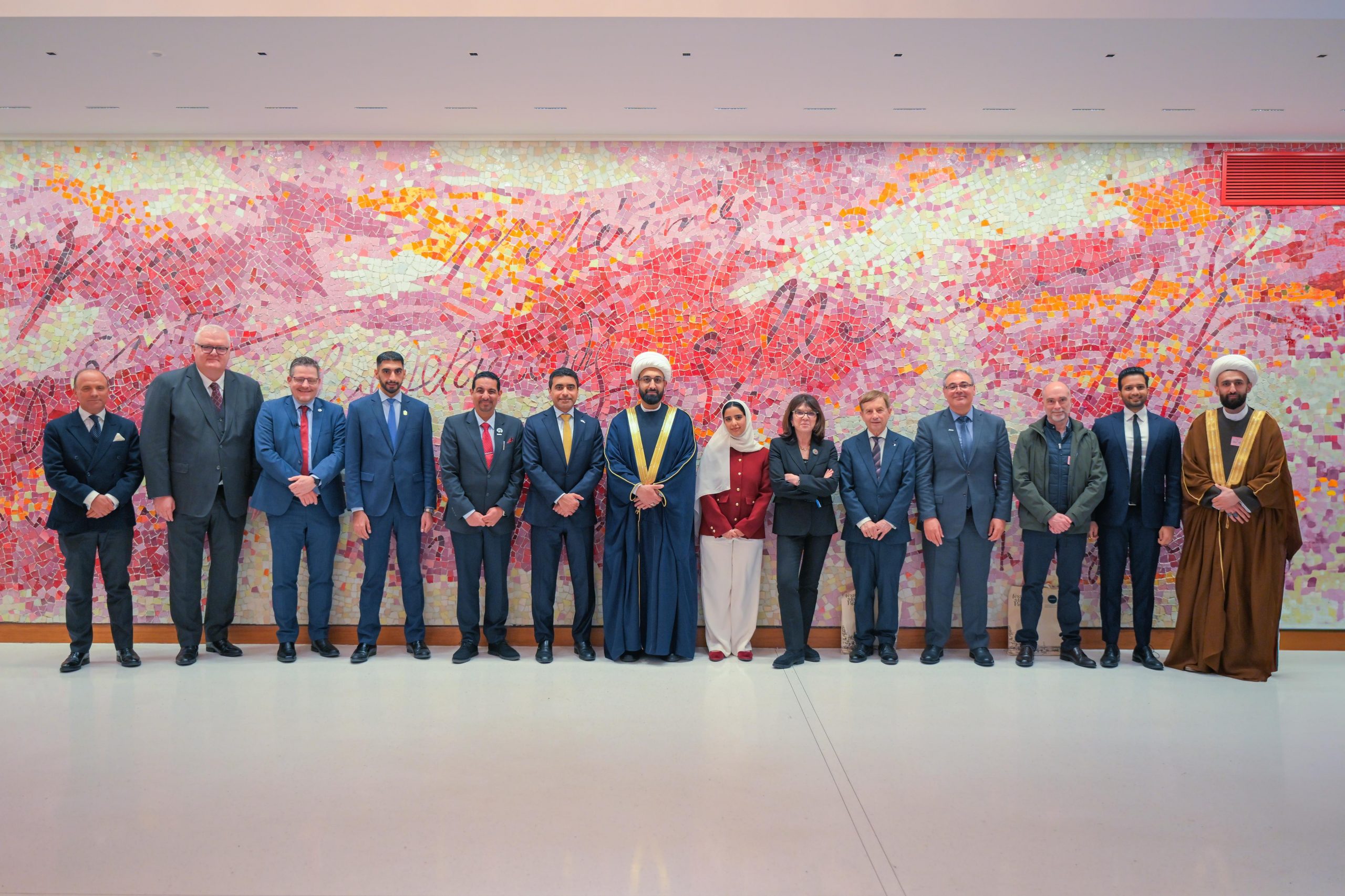-Specialists and experts:
- The use of artificial intelligence (AI) by extremist groups will increase in the coming years
- The world is capable of transforming technology from a weapon of destruction into a tool for peace
- The Muslim Brotherhood and its proxies in Europe are the architects of chaos and extremism
- AI governance is essential to curb the spread of misleading content
- Terrorism exploits technology at an alarming rate, necessitating urgent strategy development
Experts, academics, specialists, and religious figures have called for the reinforcement of cybersecurity defenses and the implementation of AI-supported countermeasures. They emphasized the need to develop tools capable of detecting, disabling and crippling the digital networks of terrorist groups and extremist movements that exploit AI to disseminate their ideologies and promote destructive narratives.
They also stressed the importance of imposing stricter regulations on technology companies, compelling them to expose those exploiting their platforms to incite sedition, extremism and terrorism, particularly the Muslim Brotherhood and its ideology. The experts advocated for banning affiliated organizations from operating worldwide, while developing techniques to detect disinformation campaigns and narrative warfare led by the Brotherhood. Additionally, they called for AI governance and increased pressure on major platforms to limit the spread of misleading content.
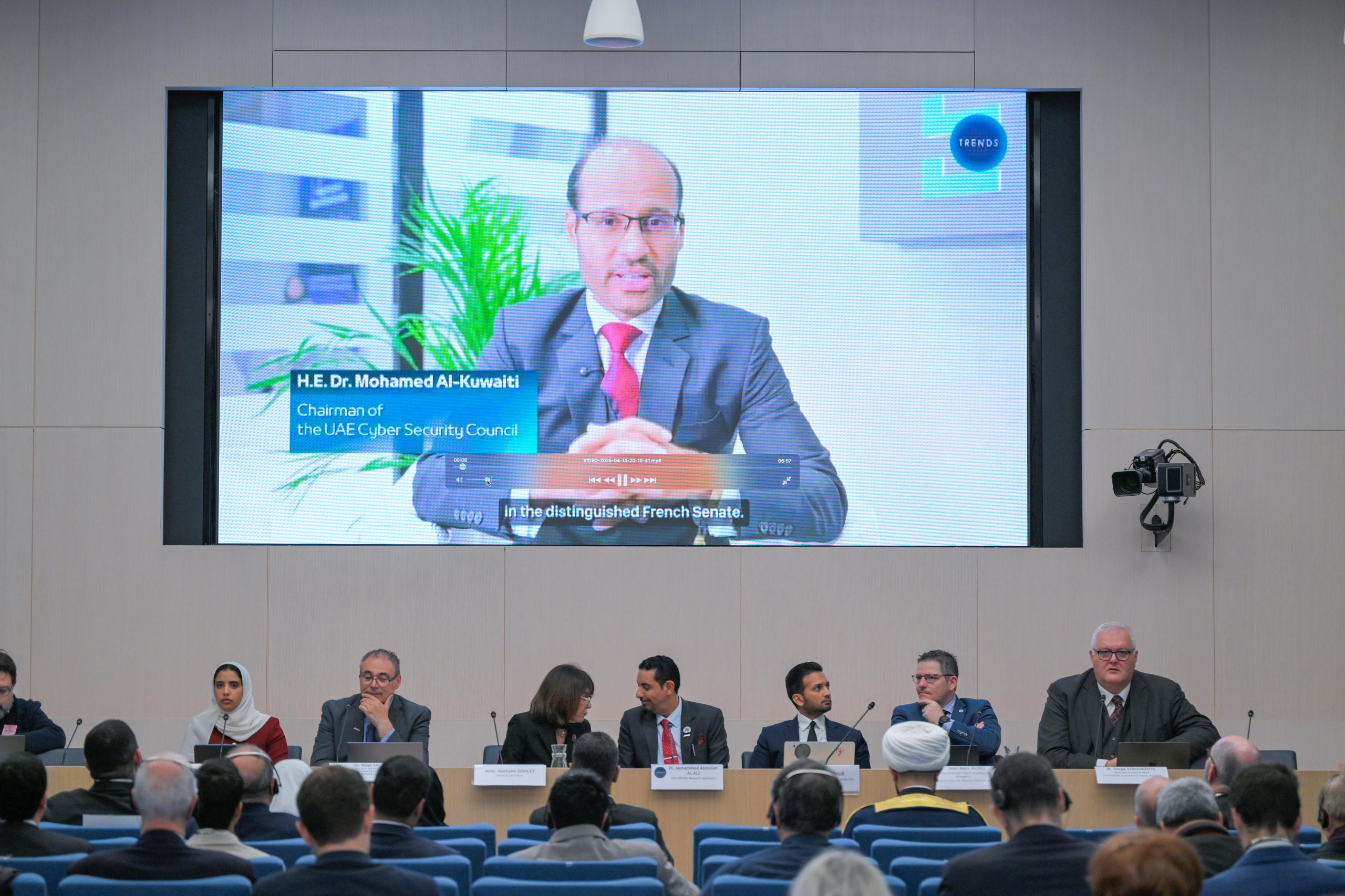
These insights were shared at “The Fight Against Terrorism in the Era of Artificial Intelligence” conference, organized by TRENDS Research & Advisory at the Luxembourg Palace, the seat of the French Senate, in collaboration with Senator Nathalie Goulet. The event marked the conclusion of TRENDS’ four-day global research tour in France, which also included discussions with the French Minister of Interior on cooperation in countering extremism and terrorism.
The conference was attended by H.E. Fahad Saeed Al Raqbani, UAE Ambassador to France, H.E. Dr. Riyadh Yassin Abdallah, Ambassador of Yemen to France, alongside a gathering of academics, experts, researchers, thinkers, media professionals and specialists in the fields of political Islam and extremist groups.
Senator Nathalie Goulet, a member of the French Senate for the Orne department, moderated the discussions. She opened the conference by stating, “The Muslim Brotherhood is a terrorist organization, and we must call things by their names. It is imperative to coordinate efforts to place this group on the terrorism list.”
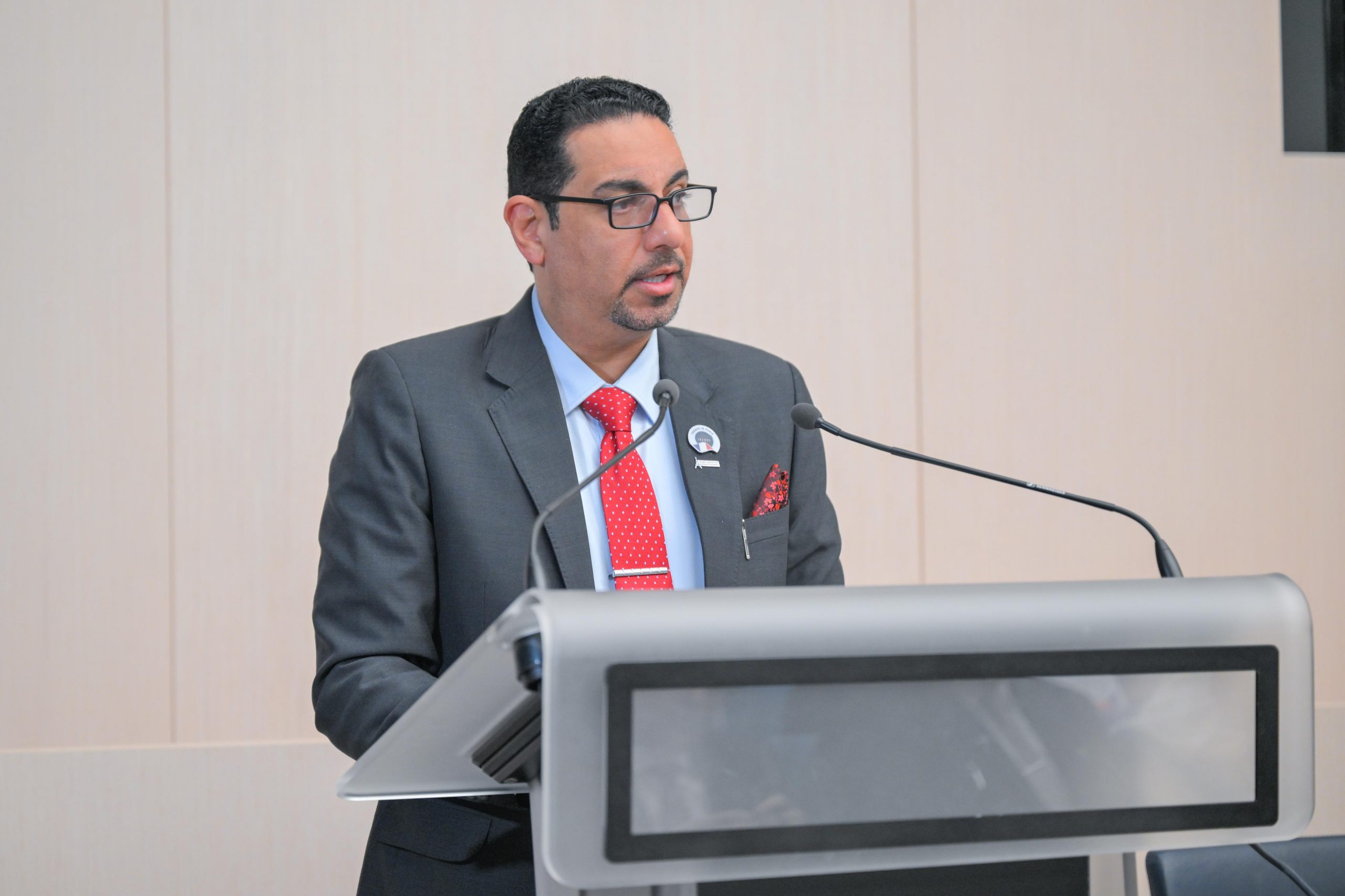
The exploitation of AI
In his welcoming remarks, Dr. Mohammed Abdullah Al-Ali, CEO of TRENDS Research & Advisory, noted that while AI offers immense benefits, it has simultaneously opened new avenues for extremist groups, enabling them to expand their tools and scope of activity. He highlighted how these groups exploit generative AI technologies, chatbots, digital games, and predictive analytics to recruit new members and target vulnerable audiences.
Dr. Al-Ali warned that the use of AI by extremist groups is set to increase in the coming years, necessitating the development by countries and institutions of counter-technologies for prediction, fortification and pursuit within comprehensive frameworks for combating extremism and terrorism. He added that the rapidly evolving relationship between AI and violent extremism requires anticipating future threats and designing innovative models to strengthen counterterrorism efforts in this transforming digital age.
He further emphasized that the world today stands at a critical juncture, with the digital domain becoming a contested space demanding international cooperation, methodological innovation and collective vigilance. Technological progress, he stressed, should serve as a catalyst for collective security, human values and democratic ideals — not a tool for undermining them.
Exposing terrorist propaganda
Delivering the conference’s keynote, H.E. Dr. Mohammed Hamad Al Kuwaiti, Head of the UAE Cyber Security Council, explained that AI has a dual role: it can either support counterterrorism efforts or accelerate extremism and terrorism. When used responsibly, however, it serves as a powerful ally in the global fight against terrorism.
He elaborated that AI accelerates search, tracking, and the exposure of terrorist propaganda, dismantling recruitment channels targeting youth. AI’s predictive capabilities can forecast potential attacks, bolstering preemptive action, and identify individuals vulnerable to radicalization, steering them toward moderate content. Conversely, extremist groups can leverage AI to plan attacks, automate recruitment, and disseminate disinformation with alarming speed and efficiency.
Al Kuwaiti called for enhanced global cooperation and partnerships to counter extremist groups’ exploitation of AI. He emphasized the need to deepen collaboration between governments to enact deterrent laws, encourage tech companies to improve cybersecurity, and promote research centers to develop ethical AI tools. He affirmed the world’s ability to transform technology from a weapon of destruction into a tool for peace.
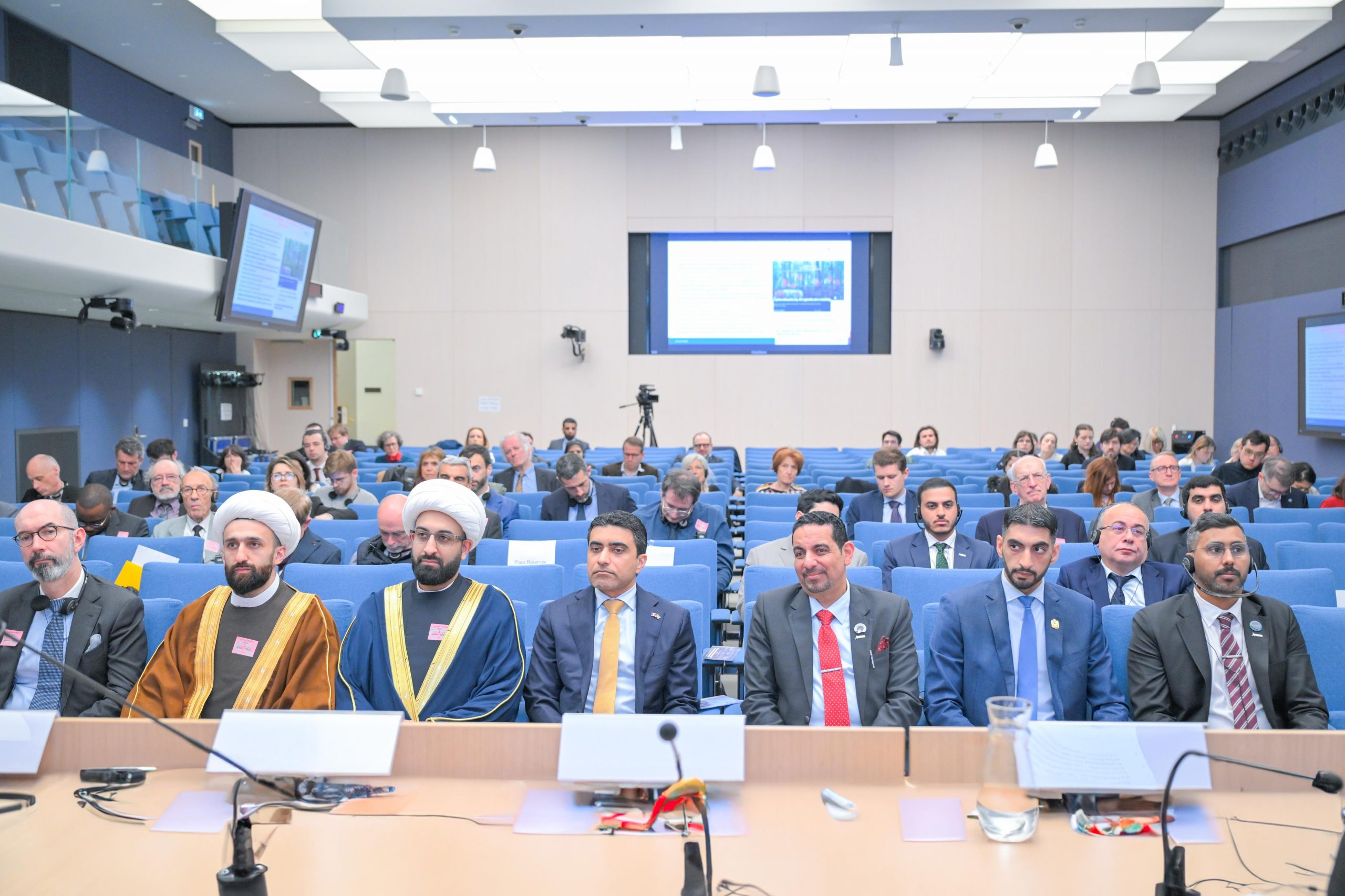
Tools to combat extremism
Priyank Mathur, Founder and CEO of US-based MythosLabs, stated that AI would act as a force multiplier for counterterrorism, driven by three powerful factors: the “Eliza Effect”, the near-simultaneous global adoption of AI, and the convergence of AI with other emerging technologies.
He explained that law enforcement agencies and civil society organizations are already using tools such as “Aldous” and “Mythos Labs” to monitor social media for extremist content, analyze data to identify patterns and connections among extremist individuals and groups, and pinpoint potential attack targets — enabling preventive action.
Developing government strategies
Dr. Jean-Marc Rickli, Head of Global and Emerging Risks and Founder and Director of the Polymath Initiative at the Geneva Centre for Security Policy (GCSP), stated that the potential use of emerging technologies by terrorist organizations could have dire consequences, affecting national security and global stability.
He stressed the importance of governments and international organizations developing strategies to counter the use of emerging technologies by terrorist groups. The driving factors for this trend, he noted, include structural elements that promote technological development — such as increased computing power, data availability, improvements in machine learning, and the widespread accessibility of technology. He warned of the potential expansion in using emerging technologies to launch cyberattacks against infrastructure and the use of drones and robots to carry out physical attacks.
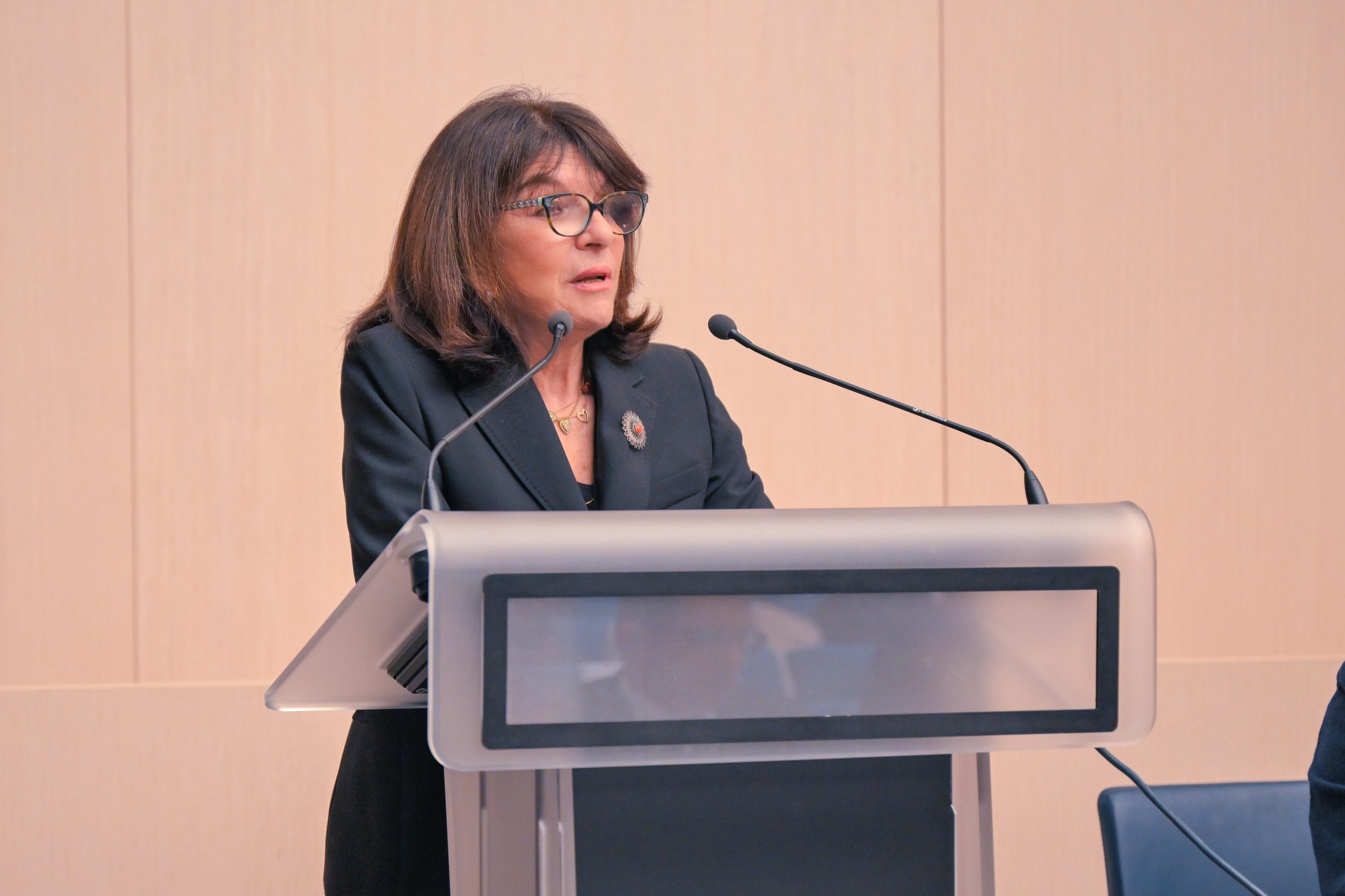
Recruitment and cyberattacks
Serge Stroobants, Director for Europe and MENA and Global Director for Security, Defense, and Intelligence at the Belgium-based Institute for Economics and Peace, remarked that AI is no longer just a tool for progress, but a weapon in terrorists’ hands — used for recruitment, cyberattacks and autonomous warfare.
He stated that extremists are exploiting AI-backed deepfake propaganda, autonomous drones, and AI-driven extremism at an alarming rate, necessitating the rapid development of counterterrorism strategies to keep pace with these evolving threats. The future of terrorism, he added, will be partially shaped by AI, as technology changes the dynamics of how terrorist organizations communicate and recruit. The Institute continues to research and analyze these trends, offering insights into how AI can act both as a security tool and a threat multiplier in the hands of terrorists.
Smart narrative wars
Dr. Wael Saleh, Advisor for Political Islam and Extremism Affairs at TRENDS, revealed that AI-driven disinformation campaigns and smart narrative wars waged by extremist groups against Arab states and societies aim to create rifts between state and society, and among various societal groups, undermining the social capital that holds communities together.
He called for the development and modernization of technological tools to detect and respond to disinformation campaigns and narrative warfare led by the Muslim Brotherhood. This should be coupled with dismantling the Brotherhood’s narratives through counter-narratives, cognitive resilience, and training citizens in digital critical thinking while supporting moderate Muslim voices capable of challenging these extremist narratives from within. He further emphasized the need for AI governance and increased pressure on major platforms to curb the spread of misleading content.
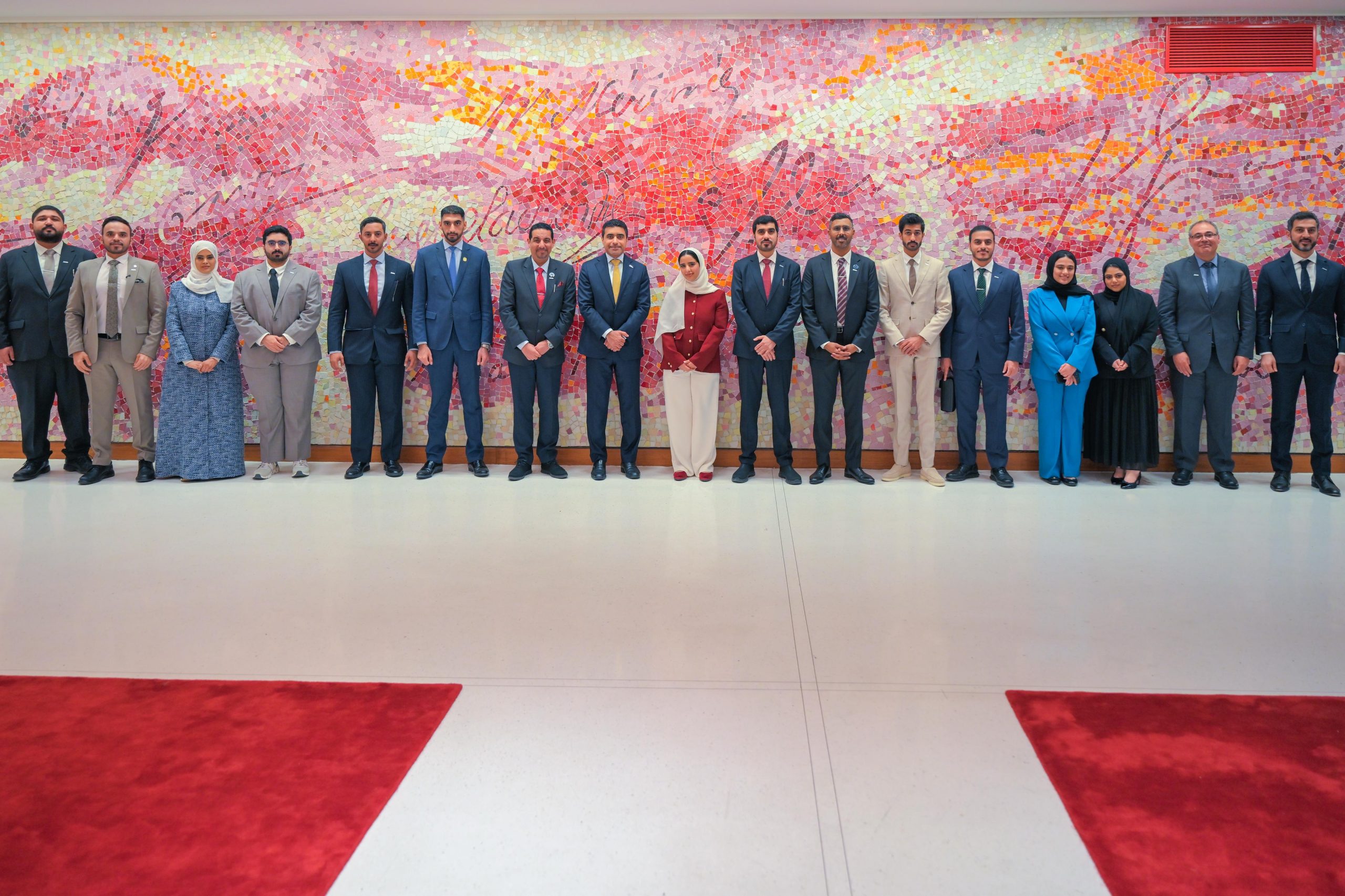
Digital masks and terrorism
Imam Mohammad Tawhidi, Vice President of the Global Imams Council (GIC), asserted that the digital era has blurred the lines between war and peace, truth and lies. The world is facing a treacherous enemy: “terrorism masked by technology”. At the heart of this threat, he stated, stands the Muslim Brotherhood, leveraging its ideology and cunning use of digital platforms to undermine freedom, secularism and fraternity, adding that the Muslim Brotherhood and its proxies in Europe are the architects of chaos and extremism.
He explained that what makes the terrorist threat potent today is extremists’ mastery of digital masks — empowered by AI to amplify their messages and shield themselves via encrypted messaging apps, social media and advanced propaganda. He stressed the importance of reinforcing cybersecurity defenses with AI-powered countermeasures and tools to detect, disable and cripple the digital networks of these groups. Additionally, he advocated for tougher regulations on tech companies and the exposure of extremists exploiting digital platforms — openly naming the enemy, particularly the Muslim Brotherhood, and banning its affiliated organizations globally.
The role of civil society
Shamsa Al Qubaisi, a Research Assistant at TRENDS, stated that confronting terrorist narratives online requires a nuanced understanding of individuals’ pathways to radicalization, which these AI tools can help map. She emphasized the need to amplify the role of civil society organizations and strengthen the relationship between security services and local communities. Law enforcement and counterterrorism agencies must also enhance their internal knowledge and technical capabilities to combat terrorism and confront extremism and its movements.
She added that while AI technologies should be leveraged to combat terrorism online, these measures must respect human rights. Importantly, she pointed out that AI only offers probabilistic outcomes, not infallible predictions, and it cannot eradicate violent extremism online alone. AI investments should be paired with holistic efforts to uproot the sources of terrorism and violent extremism.
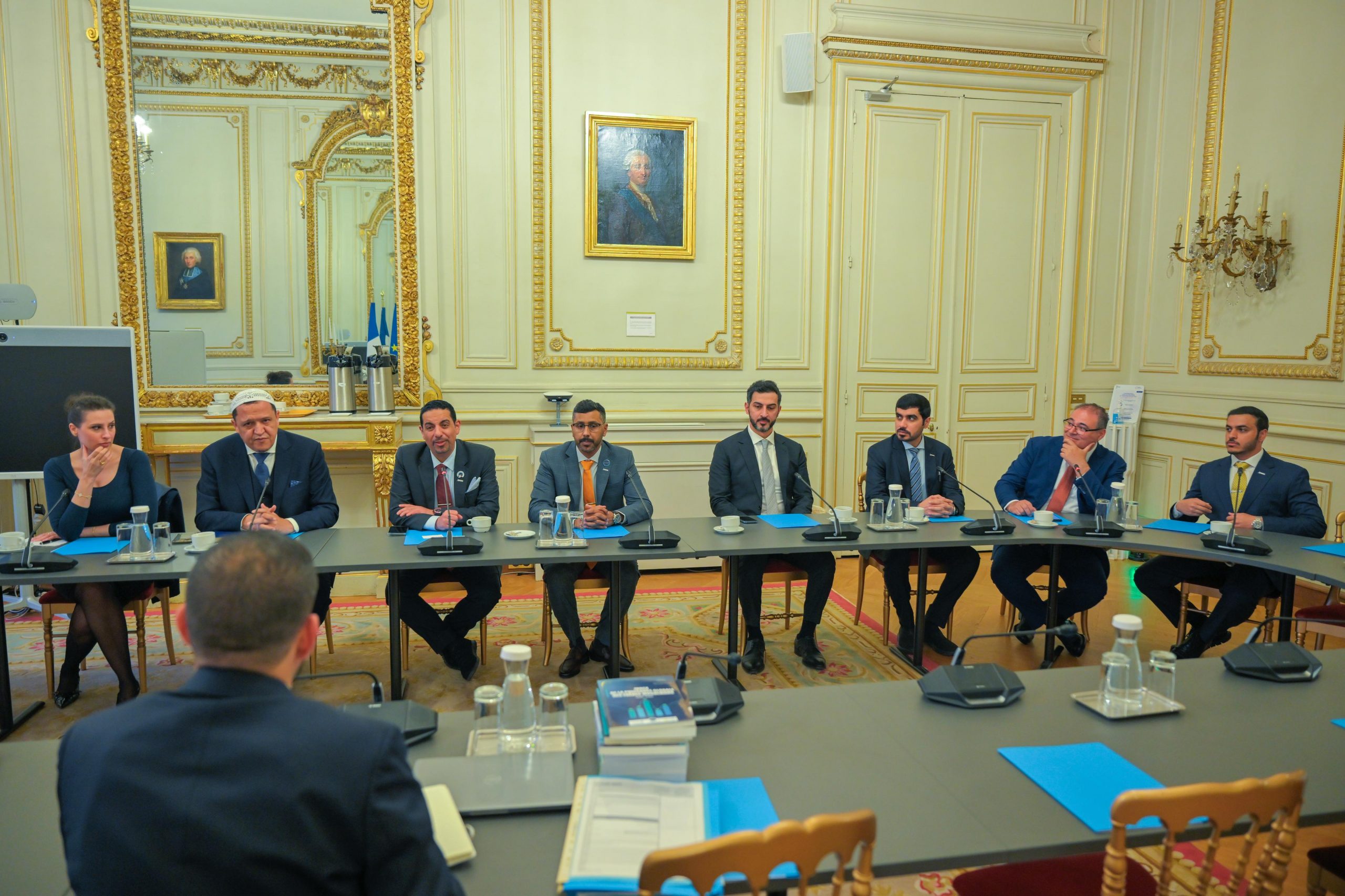
Combating extremism and terrorism
In a related context, and at the conclusion of its research tour in France, TRENDS held a discussion session with Mr. Frédéric Garnier, Advisor for Migration and Religious Communities at the French Ministry of the Interior and the official in charge of integration and extremism issues. During the meeting, the TRENDS team presented its vision on the threat posed by the Muslim Brotherhood and its efforts to counter the group’s ideas and ideology.
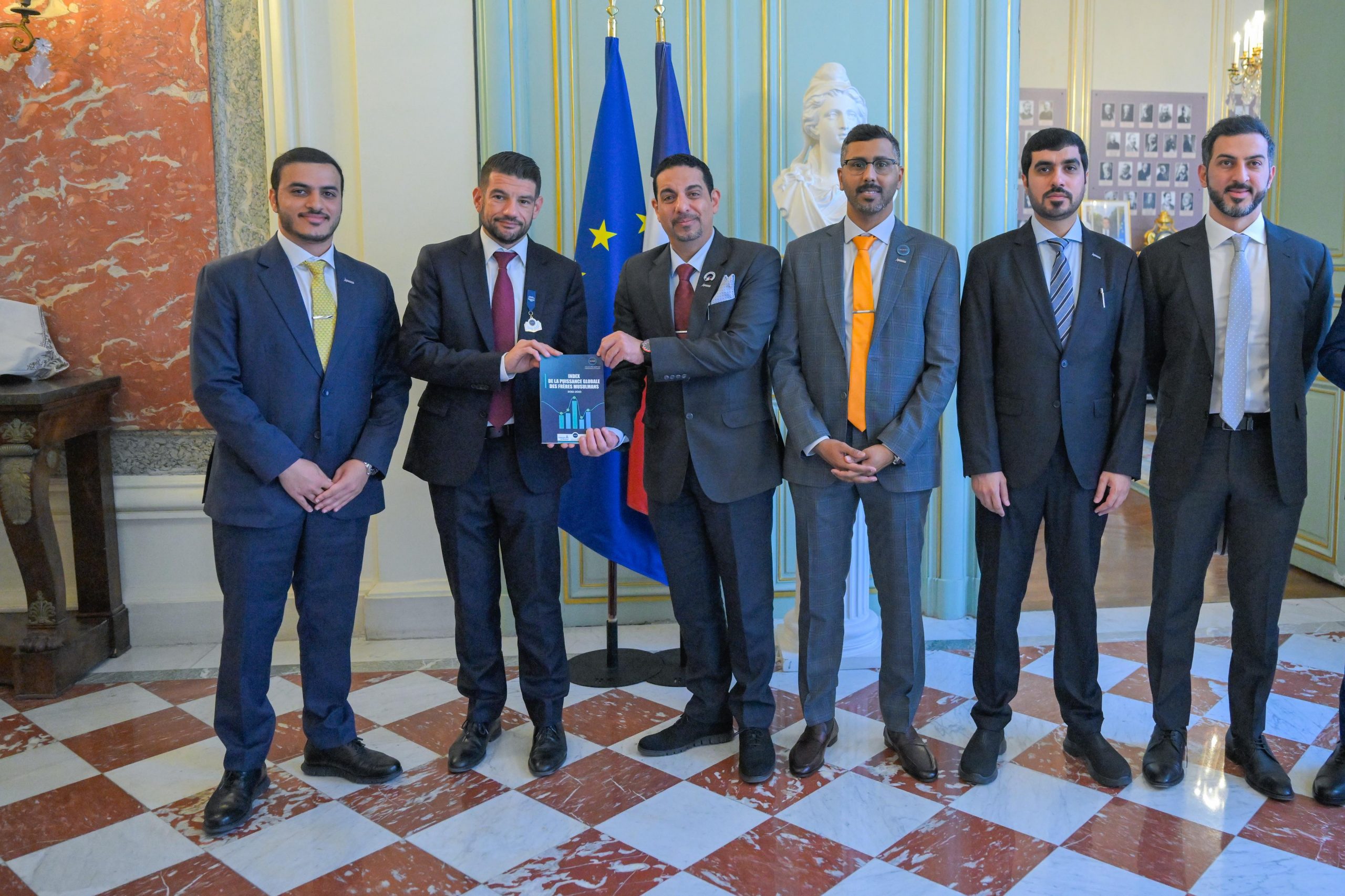
The delegation also presented the French official with a selection of TRENDS’ Muslim Brotherhood Encyclopedia publications, translated into French, along with the Muslim Brotherhood’s International Power Index (MBIPI).
Frédéric Garnier expressed the Ministry of the Interior’s interest in benefiting from TRENDS’ experience in deconstructing Islamist ideologies and exposing their dangers, and in utilizing the Center’s publications in this field. He also proposed future collaboration and joint research between TRENDS and the Ministry’s Research Unit for the Study of Extremism and Terrorism.
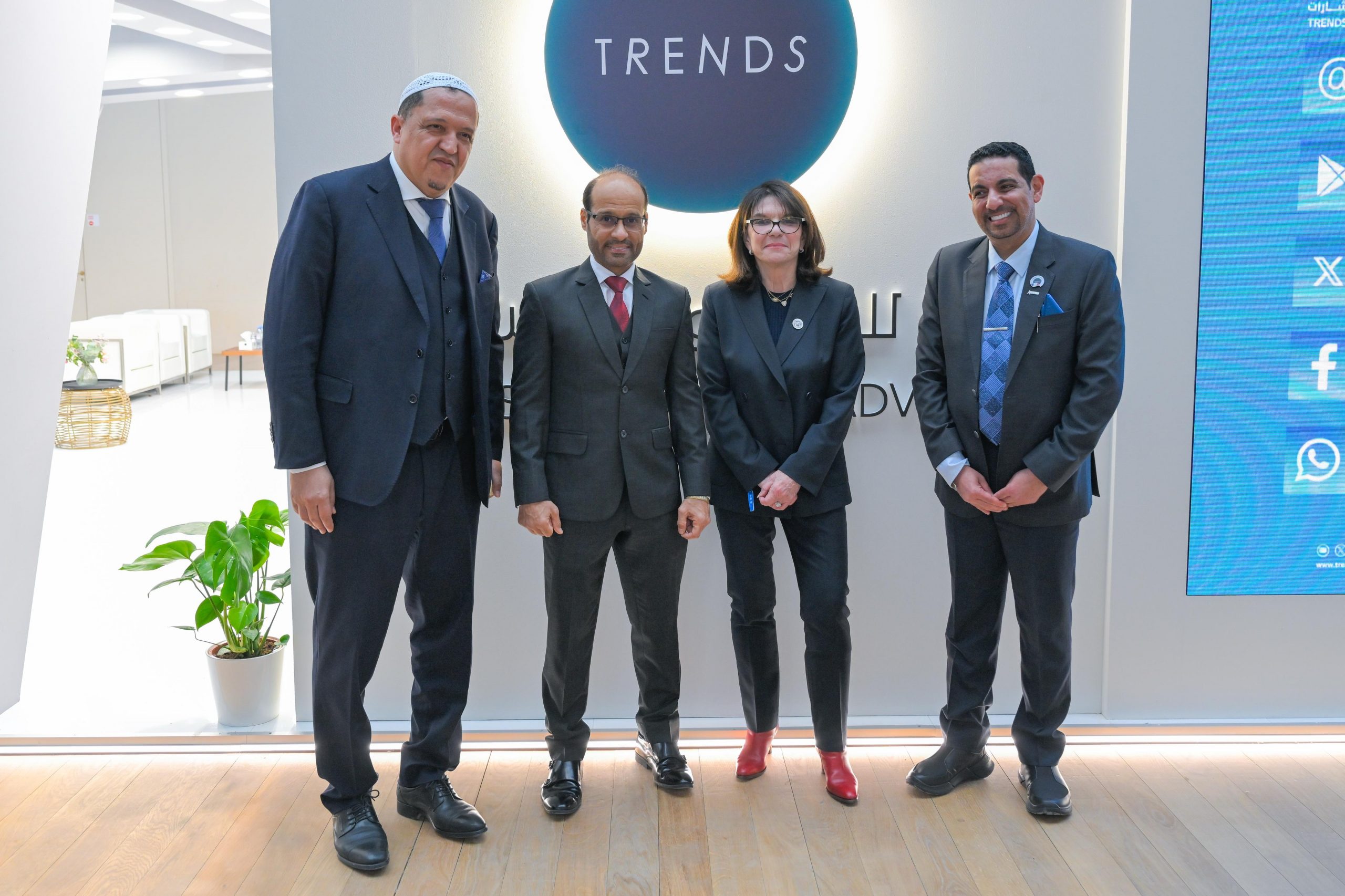
Paris Book Fair conclusion
TRENDS also concluded its second participation in the 2025 Paris International Book Fair. Its pavilion in the Salle d’Honneur attracted officials, diplomats, experts and academics, including H.E. Dr. Mohammed Hamad Al Kuwaiti, H.E. Fahad Saeed Al Raqbani, H.E. Dr. Riyadh Yassin Abdallah, Senator Nathalie Goulet, Dr. Jack Lang (President of the Arab World Institute in Paris), and Xavier Duplouy (Deputy Director of the Paris Book Fair).
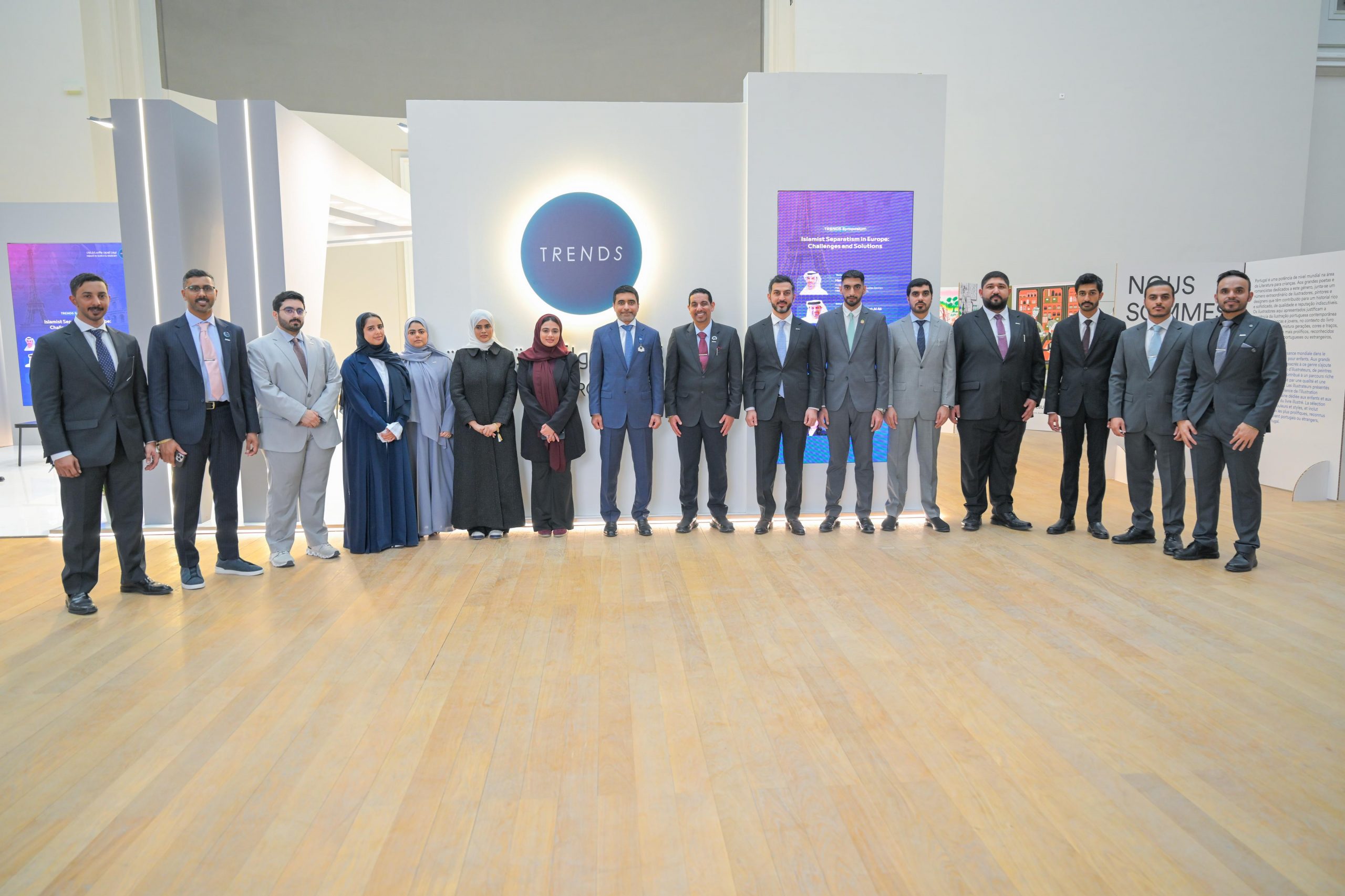
Visitors explored TRENDS’ latest publications, notably newly signed research translated into French, praising the center’s cultural and knowledge contributions and its role in fostering global cultural bridges and analyzing the future of extremist movements and terrorist organizations.
